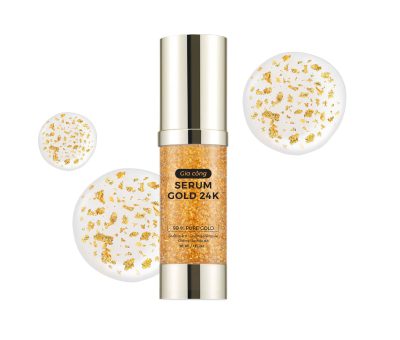4 superb sales consulting secrets for cosmetics
As cosmetics become essential items, the business opportunities in the cosmetics industry are expanding, especially for those who are serious about investing in their business and breaking through in the cosmetics market.
The increasing skin care awareness among beauty enthusiasts creates a great opportunity to accelerate profitability through manufacturing various cosmetic products such as skin care creams.
However, the challenge lies in the sales consulting approach. Not everyone is suitable for the same type of cosmetics, and improper use can lead to adverse effects. There are many other considerations to take into account to avoid problems with customers.
Below are four sales consulting secrets for cosmetics that you should keep in mind to maximize your revenue.

I. KNOW YOUR CUSTOMERS’ AGE GROUP
The first thing you need to do is predict the age group of your customers. This is essential for addressing them appropriately and, more importantly, for knowing which cosmetics line suits them. Different age groups have varying skin care needs and beauty desires.
- Customers aged 16+: Typically deal with acne and acne scars.
- Customers aged 20+: Experience moisture loss, leading to dry and less radiant skin.
- Customers aged 25+: May notice decreased elasticity and the early appearance of wrinkles due to diminishing ceramide and elastin levels in the skin.
- Customers aged 30+: Encounter pigment changes, freckles, and age spots.
To understand your customers’ needs and psychology better, ask open-ended questions to encourage them to share more about themselves.
II. UNDERSTAND SKIN TYPES WHEN CONSULTING
This is one of the fundamental skills for any cosmetics sales consultant. Knowing your customer’s skin type is crucial for providing suitable recommendations. The four common skin types include:
Oily skin: Produces excessive sebum, resulting in constant shine, enlarged pores, and susceptibility to acne.
Dry skin: Feels rough, flaky, and can become itchy or irritated. Dry skin tends to show signs of premature aging and wrinkles, even before age 30.
Normal skin: Represents the ideal balance between oil and moisture, resulting in smooth and hydrated skin.
Combination skin: This is the most common skin type, characterized by an oily T-zone (forehead, nose, and chin) and dryness in other areas.
Each skin type has specific cosmetics to address its issues (e.g., oil control, hydration). As a cosmetics consultant, you must grasp these basics to recommend the right products that resolve your customers’ concerns. Additionally, consider customers with sensitive or reactive skin and avoid irritants.
III. GAUGE YOUR CUSTOMER’S SPENDING CAPACITY
Besides age and skin type, there are also different customer groups, from budget-conscious consumers to luxury shoppers. Understanding this is vital when recommending the appropriate product line. This practice increases your chances of closing sales effectively.
Remember that these are initial assumptions, and each customer is unique. The best approach is to engage in a dialogue with them to learn more about their spending preferences.
IV. ADAPT TO YOUR CUSTOMER’S PREFERENCES
Beauty standards vary from person to person. You might think a specific lipstick color looks amazing and suits a customer, but if they don’t like it, it’s crucial to respect their choice. Your role is to provide valuable advice, not to make decisions for your customers. Therefore, never force them into buying a product that they’re not comfortable with, as this can push them away.
Customers should feel relaxed and willing to spend their money, even if the product isn’t perfectly suitable for their skin. Instead of being authoritative or unpleasant, gently advise them. If they remain determined to buy, swiftly pack it up for payment.
In summary, sales consulting in cosmetics is a crucial factor in developing your business in this industry. It not only enhances your credibility but also builds a loyal customer base that trusts your products. Hopefully, this Zencos article will help cosmetics shop owners streamline their businesses more effectively.










